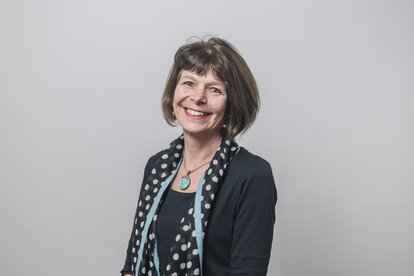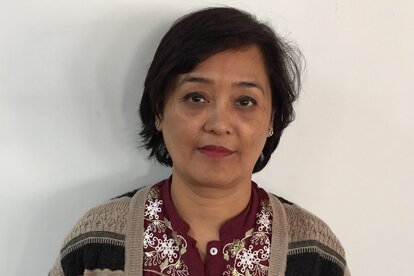In meetings of the senior management of our Nepal country program, Country Director Bharat Pokharel sometimes jokes about being a lone male voice. It is true that the positions of International Program Adviser, Head of Finance and Administration, Human Resources Coordinator and Security and Safety Coordinator are all occupied by women. However, this is not representative of managerial positions across the entire staff body. Overall, women make up 25% of project/team leaders, and 32% of all staff in Nepal. Although we enjoy a reputation in the country as a good employer, have a strong workforce diversity policy, and practice affirmative action, it is not easy to attract well qualified, competent women for positions based outside Kathmandu. Furthermore, it is often difficult to retain such women in the workforce; other opportunities, especially scholarships abroad, entice many away. Creating a working environment in which women staff, especially those in middle management, can flourish and fully develop their potential is an essential part of being an effective development organization.
Women in leadership
Gender stereotypes are deeply engrained in Nepali society and mean that characteristics such as assertiveness and dominance – traits traditionally expected of leaders - are favored in men, but not in women. In fact, this is true even in countries in which gendered expectations are less obvious, as demonstrated in an oft-cited “Heidi versus Howard” study in the USA. Given a description of the same individual leader with only the name changed, both men and women judged “Howard” to be a competent and likable boss, and “Heidi” a still competent, but rather unlikable one.
When a group of Helvetas staff from a range of different countries came together for a workshop on leadership skills in September 2016, we found that many of the skills that we value in leaders are those more often associated with women. An ability to communicate, to listen, to empathize, to delegate, and to encourage staff in developing their capacities were amongst the skills most appreciated. Studies show that these are leadership skills valued across different types of organizations and cultures. It seems that what we expect of a leader is not necessarily what we really want.
During the 2016 workshop, we covered many aspects of leadership – skills needed in different circumstances; the pitfalls of gender (and wider) stereotyping and the biases that we all carry with us; and why workforce diversity is so important. The latter was discussed from the viewpoint of fostering innovation and creativity rather than an ethical imperative, although clearly it is important for a development organization to “walk the talk” of social inclusion. On returning to Nepal, the six Nepalese participants shared amongst colleagues what they had learned. Time went by, and in 2018 we decided to revisit the topic in a “learning expedition” for interested middle-management staff, supported by a few more senior resource persons. Priority was given to women, whilst including a limited number of men who we expected would champion inclusive leadership.
“A learning expedition”
Our “expedition” was conceived in terms of a first three-day workshop, a period of putting into practice what had been learned, and then a further two-day workshop nine months later. At the end of the first workshop, each participant came up with a personal action plan aimed at improving their leadership skills. This they discussed and agreed with their immediate supervisor and one of the authors of this blog (Arunima Kayastha, HR Coordinator). Nine months turned to a year, but we duly met again last month – or some of us did. Some had meanwhile left the organization, others had joined, and still others who could not make the first workshop were keen to join the second.
We found that participants really valued the opportunity to reflect on management and leadership issues away from their regular duties. A blog is not the place to describe different topics and sessions, but whilst we covered a mix of theory and practice, real examples (disguised if necessary) were particularly appreciated. Detailed case studies, written or presented as role plays, provoked much animated discussion in small groups and seem to be what participants will most remember.
Leadership skills might come more naturally to some than others – but what came clearly from the expedition was that everyone can learn, and everyone can benefit from reflection on ways to manage complex, difficult situations. For some of the women participants it seemed particularly helpful to recognize and challenge the more subtle gender expectations within themselves that can hold them back. Sunila Baniya, Skills Development Coordinator, Safer Migration Project, expressed this clearly:
“For me, it was a good learning experience. I always tended to hesitate to speak in front of a group, I was conscious of ‘what if I made a mistake during the presentation?’ or ‘what if others misinterpret what I say?’ But in this training, I gathered the courage to speak.”



